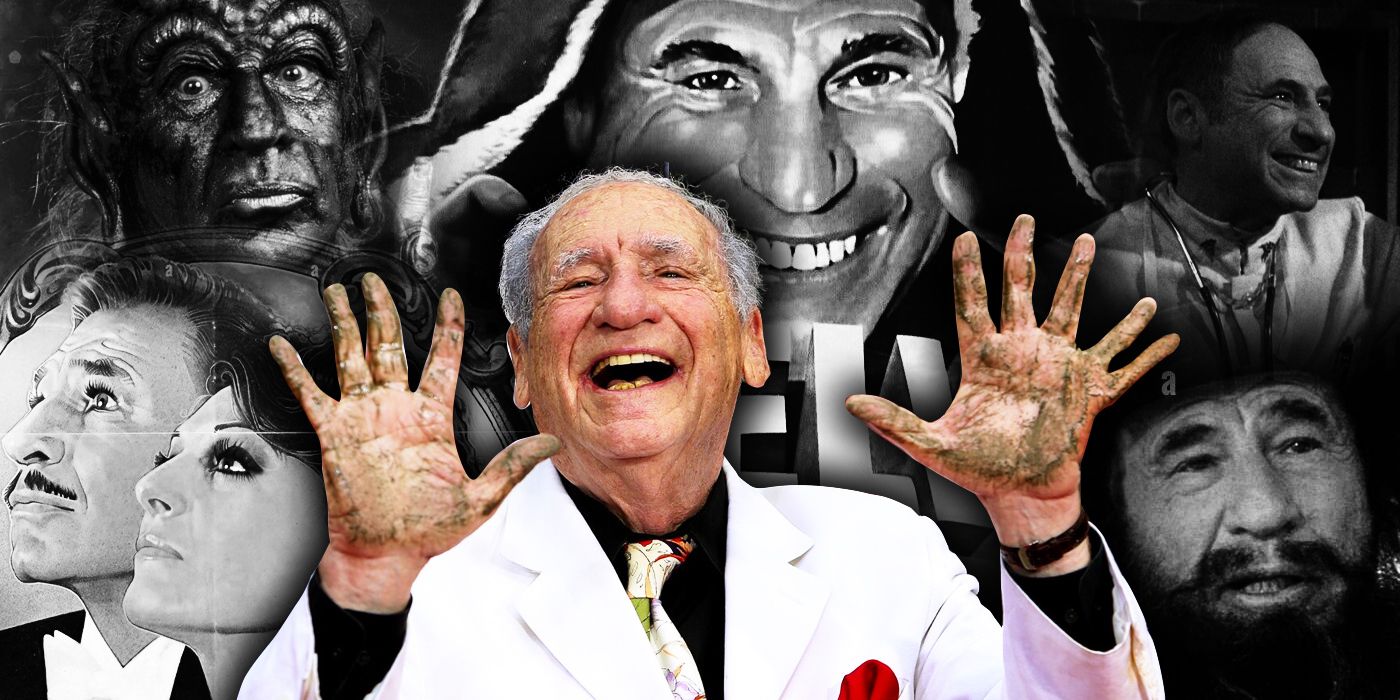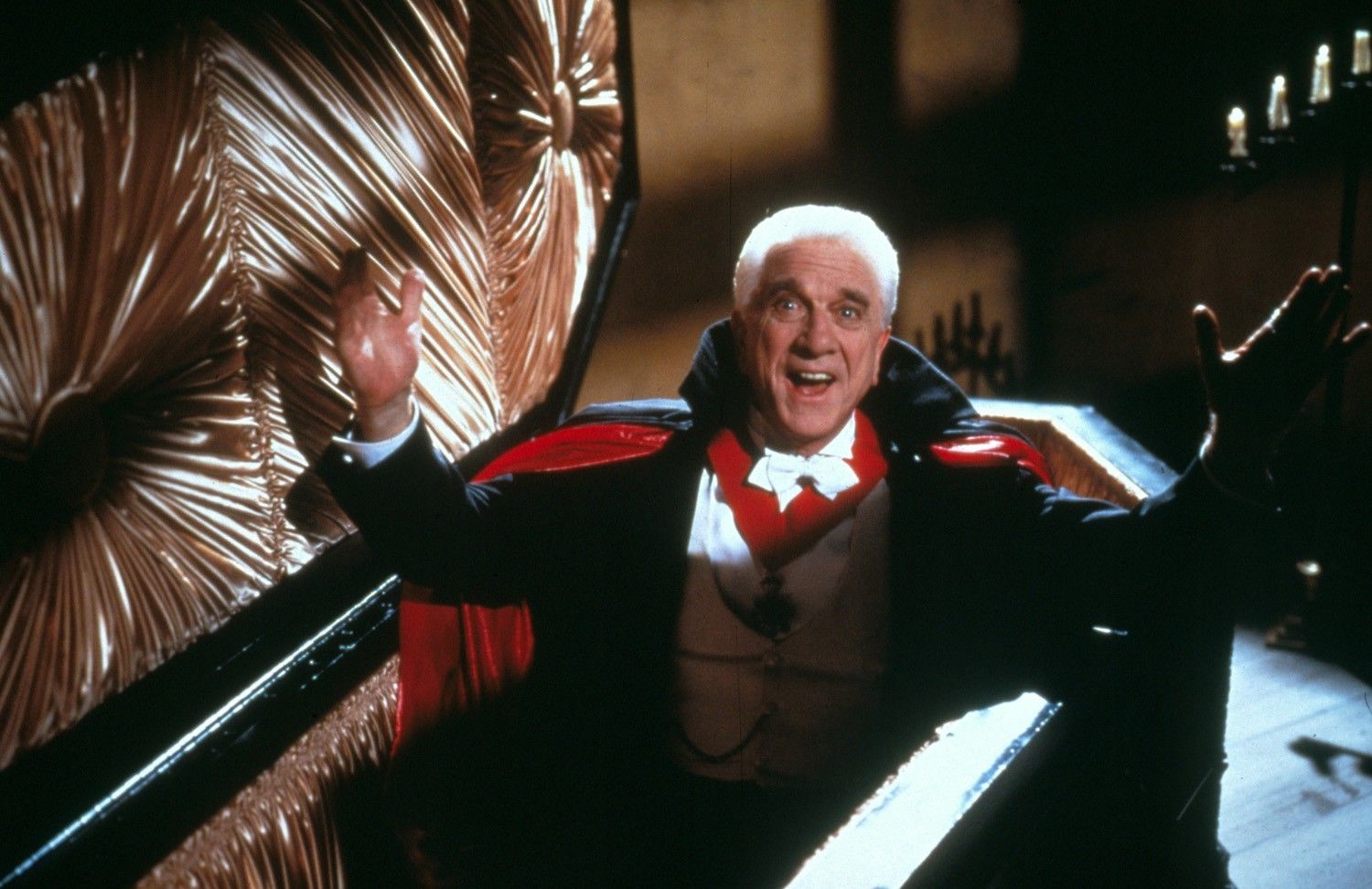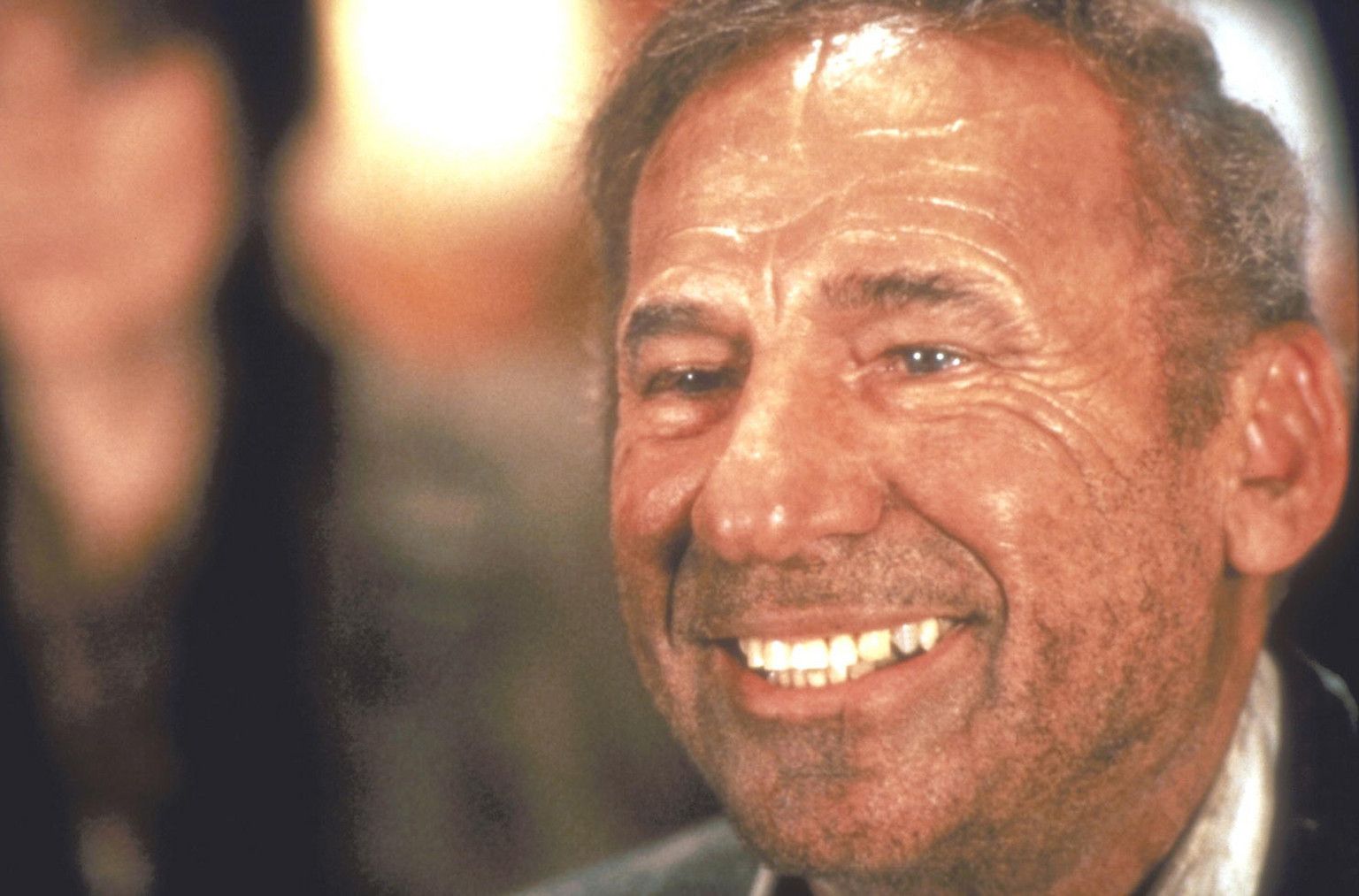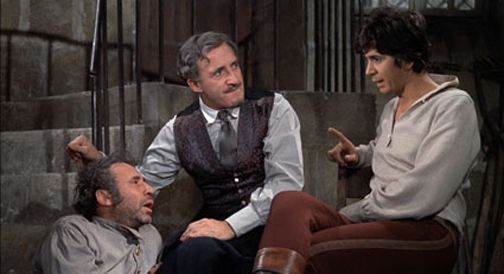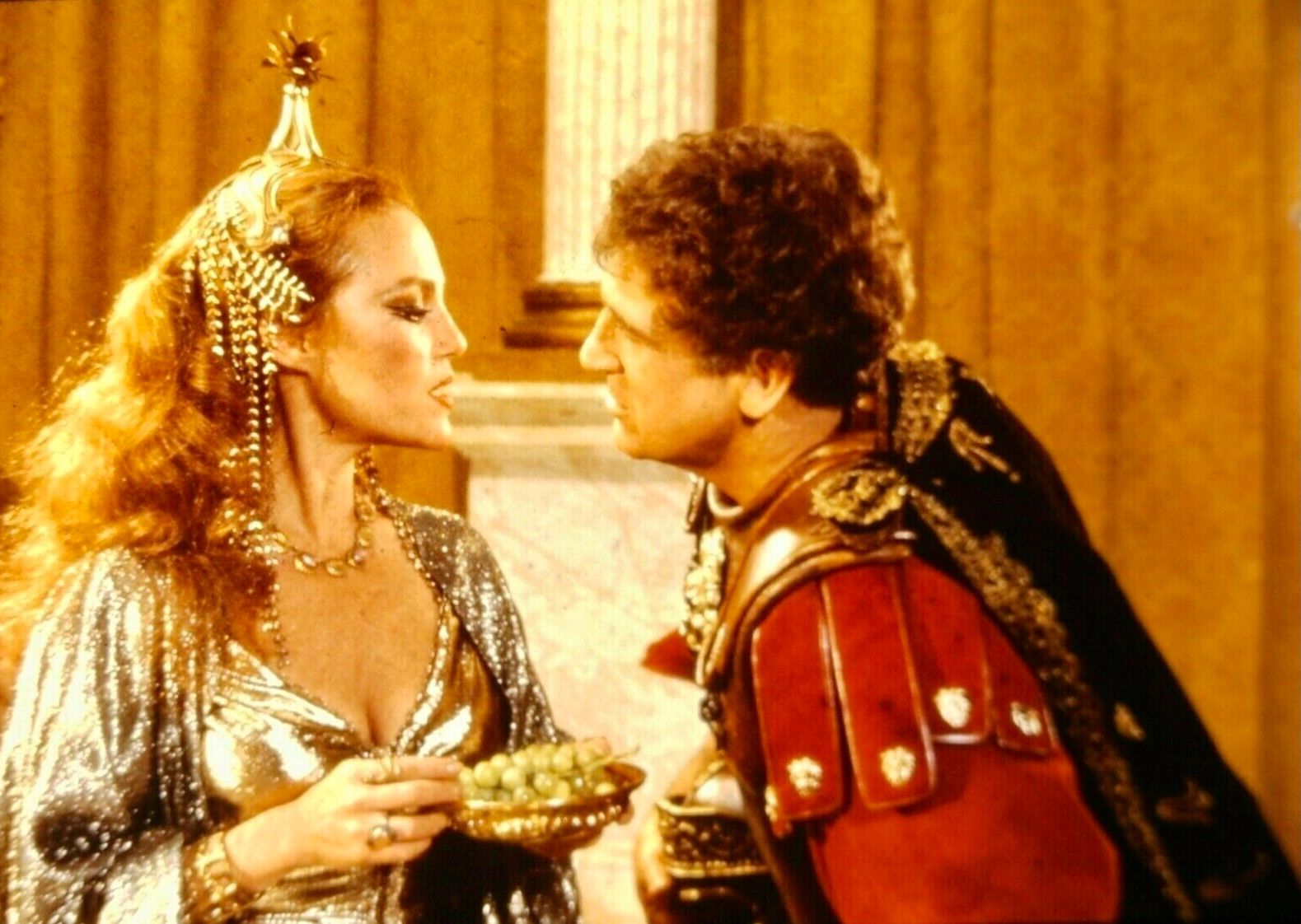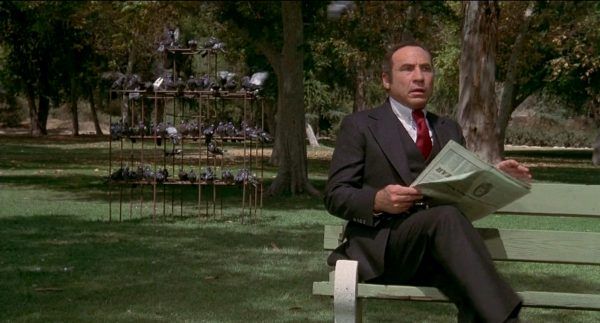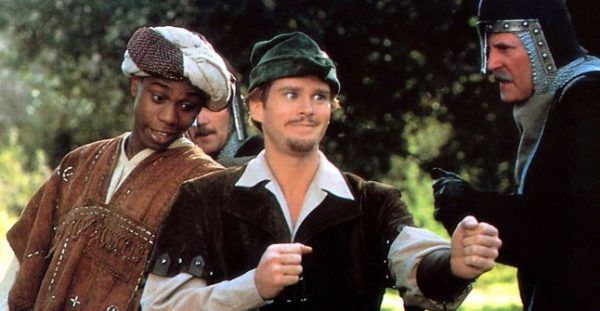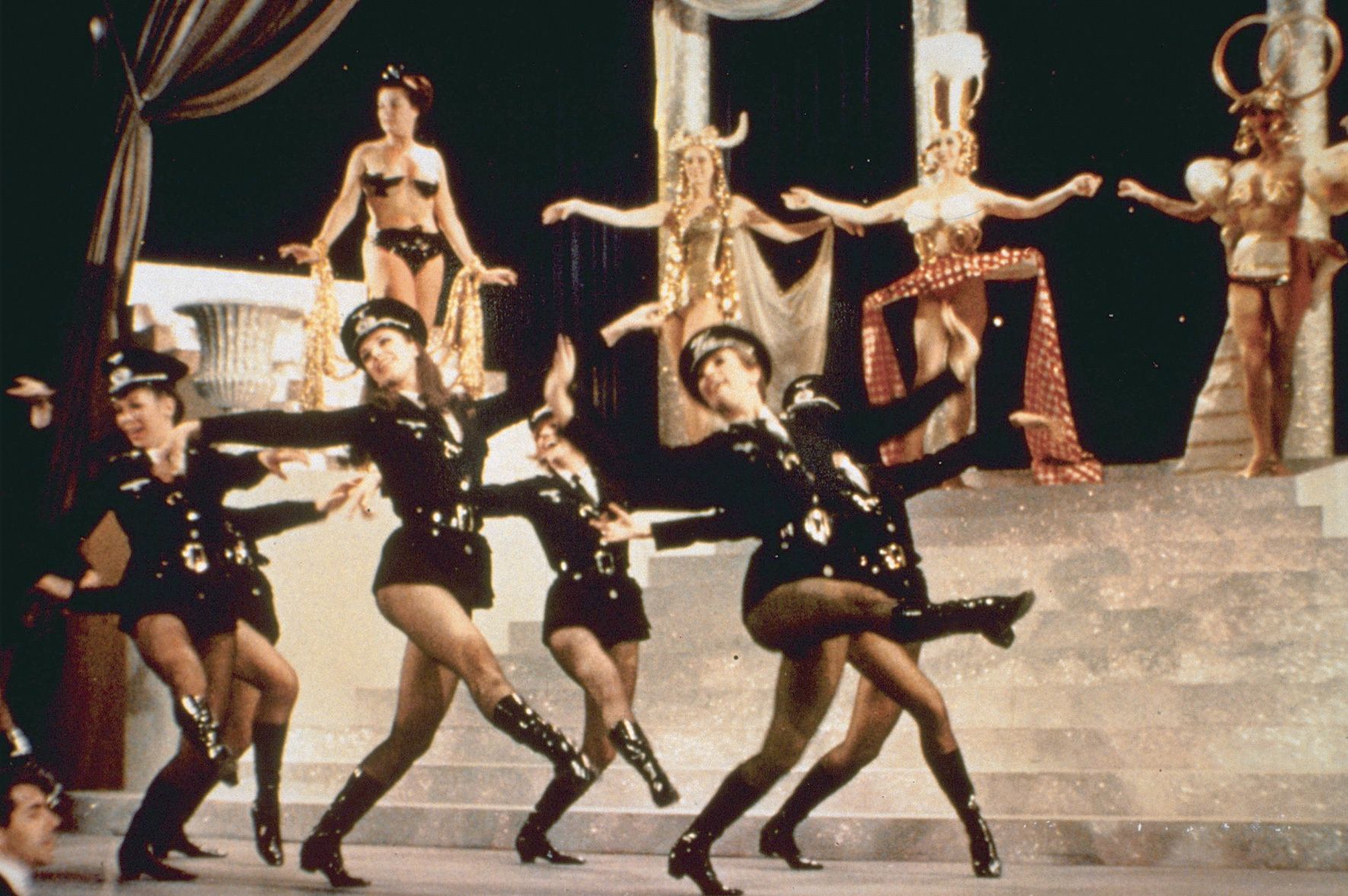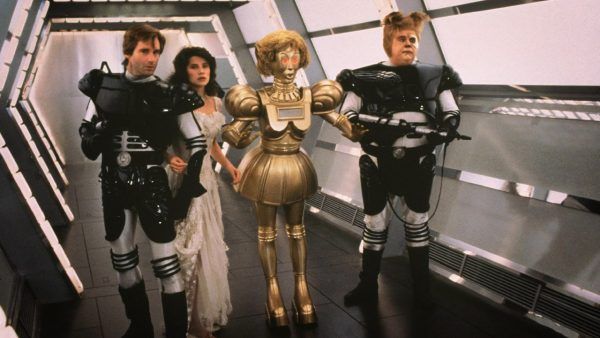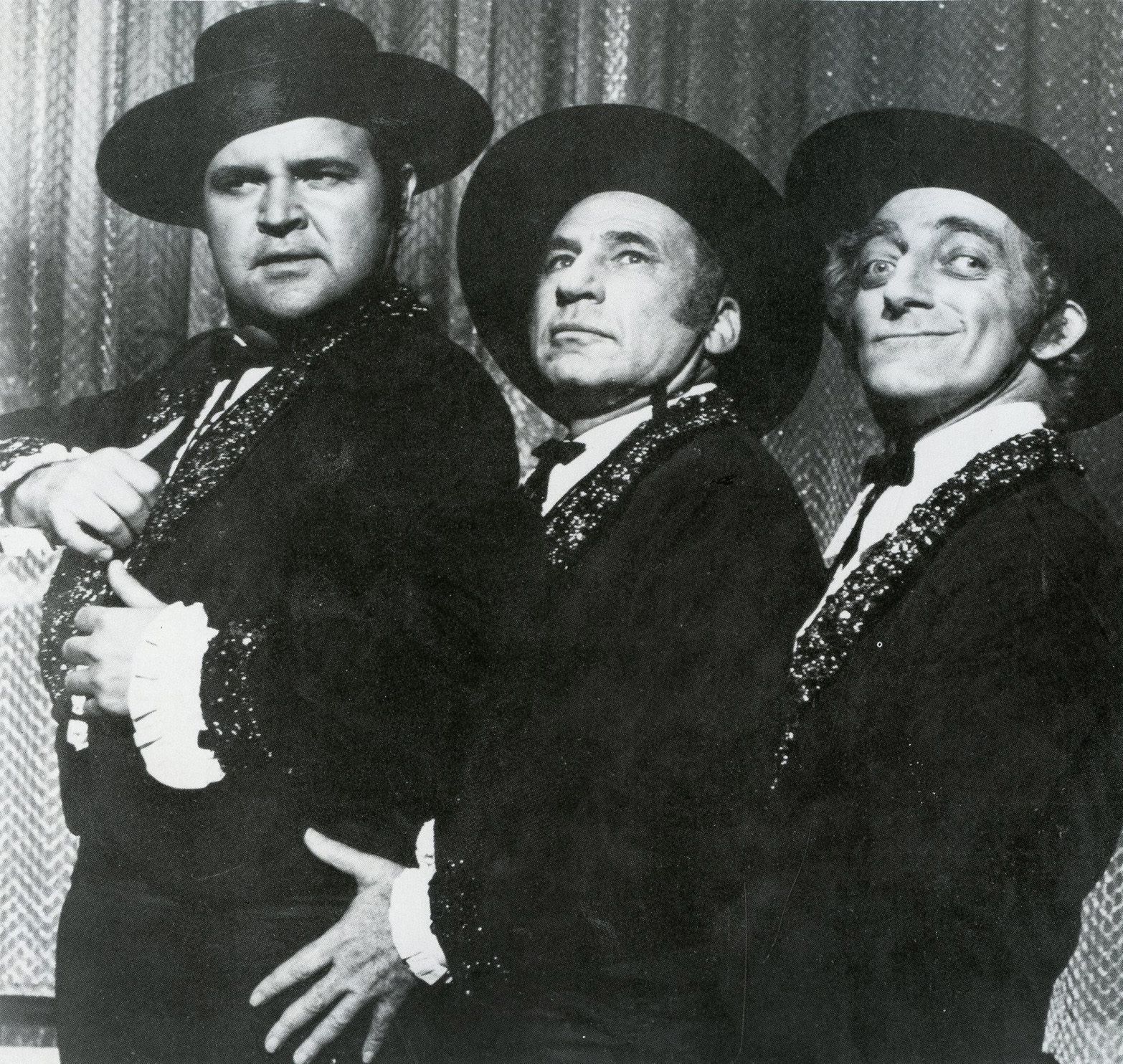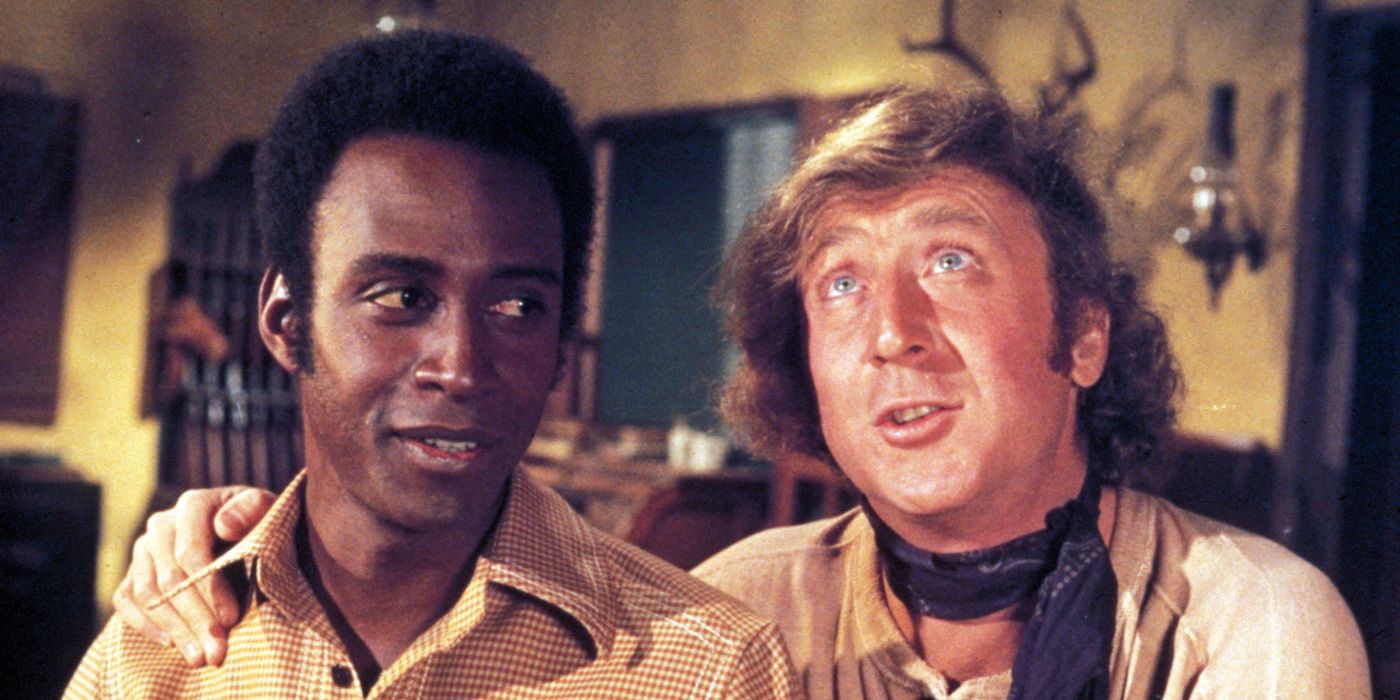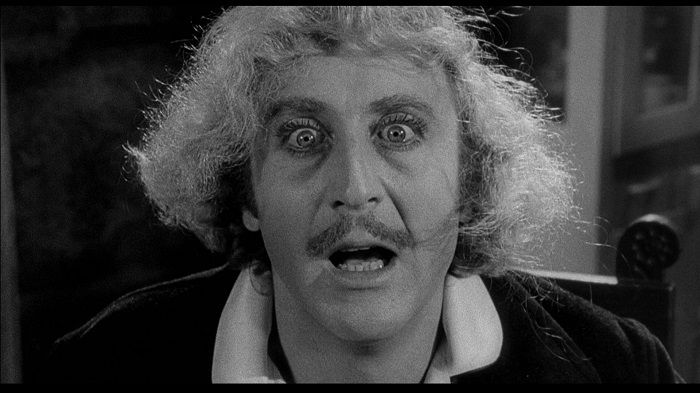"Tragedy is when I cut my finger. Comedy is when you fall into an open sewer and die" might be one of the best ethos for a comedian, game to do anything for a laugh. That's especially true for the one-of-a-kind writer, producer, director, actor and EGOT recipient Mel Brooks, whose brand of broad slapstick mines the depth of human despair and manages to find the comedy inherent in bleakness. Content to make fun of anything and everything, Brooks' films run the gamut of witty, irreverent and vulgar. If there's a common trait to any of the man's films, it's his pure commitment to the laugh; Brooks will tear down the fabric of the worlds his films occupy for a single chuckle. The lack of rules are the rules. And it's that anarchic spirit that make his filmography so eminently watchable.
Let's examine and rank, from worst to best, the filmography of one of the most prolific American comic directors and writers of the 20th century. And luckily, there's nothing as bad as that fabled production of Springtime for Hitler from The Producers....
12. Dracula: Dead and Loving It (1995)
...but we come close. This, unfortunately, is the last film Brooks has directed. It’s a shame that the jokes cannot match the movie’s exceptional production design and costuming, which are remarkable facsimiles of the old Hammer horror films Brooks chooses to satirize in the film. But instead of parodying the conventions of the source material like in Young Frankenstein, Dracula: Dead and Loving It settles for cheap gags and one-liners that could have been done by any parodist. Additionally, while that former film stemmed from a love of old Universal horror, this one doesn’t wear its heart on its sleeve; it feels passionless, like it’s merely going through the motions of joke construction. It’s not an abomination, but if even Leslie Nielsen feels listless and wasted in your film, then something is wrong.
11. Life Stinks! (1991)
A rare non-parody for the comedy auteur. Also a rarity in that it was a critical and commercial failure, grossing just $4 million on a $13 million budget. Instead of a laugh-a-minute romp, this modern treatment of How the Other Half Lives tells of a rich executive (Brooks) floundering on the streets to win a bet, and the results are more morality tale than comedy. Sometimes the film commits too hard, with the death of one character being treated too depressingly for a movie with the silly kind of gags it has. But Brooks has a captivating presence on camera, and the supporting actors (Lesley Ann Warren and Theodore Wilson as fellow derelicts) turn in great work. Warren, in particular, shines as a bag lady prone to manic episodes. The themes of homelessness and greed were likely not what critics or audiences wanted from the normally escapist Brooks in 1991, but 30 years on the movie deserves another look. Just expect a bit of tonal whiplash from the comedy, which is some of Brooks' blandest.
10. The Twelve Chairs (1970)
This film, Brooks’ second, follows the model of The Producers in examining the morality and relationship between two conmen (Ron Moody, Frank Langella) as they try to find a chair that has jewels hidden in its stitching. One of many film adaptations based upon the 1928 Russian novel of the same name, Brooks’ film follows the mode of an adventure caper as the men trek across Soviet-era Russia from villages to Moscow in search of the coveted seat. Perhaps due to the confines of the source material, the comedy is drier than Brooks’ generally go-for-broke material; a lot of the jokes are sight gags based on Russian and Jewish orthodoxy, and as such might be missed by the viewer. But the big, larger-than-life characters are here, most epitomized by Dom DeLuise’s carnally greedy Father Fyodor, the standout of the film. Moody is also excellent as the highstrung Vorobyaninov. But despite all this and the lush cinematography offered by the Yugoslavic countryside, making the film perhaps Brooks’ most striking to look at, the film gets let down by a disappointing second half that merely retreads what the viewer has already seen: travel, a comedic misadventure, no jewels, then onto the next one. It’s a shame because The Twelve Chairs otherwise offers a unique vehicle -- non-parody, drama-laden -- in Brooks’ filmography.
9. History of the World, Part 1 (1981)
Theatrical sketch comedy, with pieces humorously depicting cavemen, Moses and the Old Testament; a Roman Empire gone to excess; the Spanish Inquisition; and the French Revolution. There are so many laughs to be had in this film, that were it not for the film’s overall lack of framework or structure, it would likely be higher. The Rome segment bears the majority of the film’s runtime, and it -- featuring Dom DeLuise as a gluttonous Nero and Gregory Hines as the cool, confident Josephus -- feels the most like Brooks’ other works in its anachronisms and characters you root for. But the catchy Spanish Inquisition musical number may be the only time in cinema history to mate cheeky puns about iron maidens and hot poker torture with a perky Vegas showman routine and Busby Berkeley-esque choreography. A movie as wonderful for history aficionados as it is for comedy lovers, it’s highly recommended for anyone who has ever pined for a “Who’s On First?” routine with Jesus Christ filling in for Lou Costello.
8. High Anxiety (1977)
An ode to the Master of Suspense, this Alfred Hitchcock-inspired flick dovetails elements of thriller classics like Psycho, The Birds, and (mostly) Vertigo and Spellbound in its story of an acrophobic psychiatrist (Brooks, naturally) who oversees the strange Psycho-Neurotic Institute for the Very, Very Nervous. If there’s a problem with the film, it’s that the very parodies themselves don’t feel either transgressive or particularly biting. This is perhaps owing to the fact that Hitchcock himself loved humor and irony and loaded his films up with the stuff; so how can one adeptly parody a welcoming target? Yet some of Brooks’ funniest gags come through in the movie, with Cloris Leachman’s disturbing, S&M-loving Nurse Diesel stealing the show and co-writer Barry Levinson’s aggrieved bellhop delivering the requisite Psycho parody with aplomb. Hitchcock himself loved the movie. It’s no wonder; he himself devised the bird-defecation parody of The Birds.
7. Robin Hood: Men in Tights (1993)
Perhaps the fastest-paced of all of Brooks’ films, this one boasts mile-a-minute one-liners and gags. The effect is akin to being bludgeoned over the head with a hammer; eventually, dazed and numb, you acquiesce to the circumcision-performing rabbis and gravity-bending arrows. Or something like that. Luckily the jokes boast a favorable hit-miss ratio, and the cast -- including a self-aware Cary Elwes as the title swashbuckler and Richard Lewis as the neurotic nemesis King John -- gels fantastically, with each character utilized to strong effect. This one may be just about the silliest, most low-calorie of the entire list, but there’s so much fun to be had in watching the tag-team of merry men fight usurping kings and abusive sheriffs in the village of Rottingham.
6. The Producers (1967)
Controversial at the time of its release, Mel Brooks’ first feature film as a director feels fittingly like a play. Many of its scenes involve the two main figures, sleazy Broadway producer Bialystock (Zero Mostel) and nervous accountant Bloom (Gene Wilder), discussing their plan to produce a theatrical bomb that will net them a (fraudulent) profit. Mostel and Wilder are a treat to watch on screen together, as they feed off of each other’s energy and keep upping each other to the point of madness. While the acting is certainly the highlight of the film, there are a few standout sequences, namely the pull-out-the-stops show number, “Springtime for Hitler,” offensive to anyone with a sense of taste. This film maybe bears the weight of time more than most of Brooks’ other films, as the madcap rhythm of the film doesn’t exactly translate to a coherent comedic momentum; rather, it’s a series of standout vignettes, usually those involving Mostel and Wilder. In 1967, though, this must have been a film like no other.
5. Spaceballs (1987)
It’s big, it’s loud, it’s dumb, and it’s pretty funny. Spaceballs is Mel Brooks doing Star Wars, and it’s natural territory for the comic master with the franchise’s easily spoofable setting and characters. Instead of the ornate Millennium Falcon, we get a carpeted RV, and Princess Leia (Daphne Zuniga) is churned out as a caricature of the Jewish American Princess archetype while the menacing Darth Vader becomes Darth Helmet (Rick Moranis), a geeky manchild who can’t do anything right. Really, this one is hard to describe in words that don’t sound like the fever dream of an unbalanced pulp cartoonist. Unlike High Anxiety’s problems with mimicking a humorist, Spaceballs can get more mileage out of its zings as its source material plays it straight; and it’s maybe a little more satisfying to puncture a hole in the fervently-followed lore of George Lucas than Hitchcock, whose humor probably charts darker waters than even Brooks and his ilk. Plus the movie’s main throughline is a savaging of excessive merchandising -- Spaceballs towels, placemats, and lunchboxes are regularly visible in shots -- and that makes Spaceballs maybe the most lethal of Brooks’ parodies.
4. Silent Movie (1976)
Brooks is a man who always conveys a love of the films and genres he satirizes in his pictures. But none are as positively ebullient as Silent Movie, a touching ode to the medium and early comedic heavyweights like Buster Keaton. With a plot as meta as it gets for Brooks, the film’s story follows a director and his two companions (played by Brooks, Dom DeLuise and Marty Feldman) attempting to attain star power for the director’s comeback project: a silent film… in 1976. Which of course is modeled after the exact trajectory Brooks’ own film underwent, with studio executives only signing off on the idea if Brooks got cameos from some of Hollywood’s biggest players, including Burt Reynolds, Paul Newman and Liza Minelli, who all deliver uncredited cameos. The film is a joyous breeze, passing by quickly with slapstick and physical comedy galore. At its core, the movie also skewers the movie industry as a bunch of clueless, greedy executives when we see the conniving scheming of the Engulf and Devour megacorp (a cheeky nod to Paramount’s then-owner, Gulf and Western).
3. To Be or Not to Be (1983)
Interestingly for the Brooks canon, the film is not an original work; it’s a remake of a 1942 film about a troupe of actors in war-torn Poland using their abilities to pull one over their Nazi invaders. Additionally, Brooks didn’t write or direct the film (though he produced, and essentially would direct the actors from the sidelines, as recounted by co-star Tim Matheson). Lastly, outside of the fact that Brooks dons a Hitler-stache in imitation of the dictator, the picture mostly eschews comedy in favor of wartime drama. But To Be or Not to Be works well as a serious film with small bursts of comedic moments. Anne Bancroft as Brooks’ theater actor character’s wife -- itself mirroring reality, as the Oscar-winning actress was married to Brooks in real life -- deserves commendation for just how much gravity and fire she puts into the role. And Brooks’ Frederick Bronski, a mocked actor who manages to save the day with his thespian skills, yields considerable poignance. And at the end of the day, the film may be the most touching ode to show-business in Brooks’ ouveure. It’s also his most underrated film.
2. Blazing Saddles (1974)
Blazing Saddles is perhaps the funniest movie in Brooks’ canon. It’s shamelessly goofy, vulgar, and not bound by a modicum of taste, class or structure. But that’s why the movie succeeds. It cradled the then-limit of the parody art form, wound its arm and chucked it a good 50 yards away. One could feasibly argue that Saddles set the direction for the rest of Brooks’ career, and that every movie thereafter has the unenviable position of sitting in its shadows, the offspring of the Silver Age granddaddy of the parody film. It’s unfair to measure all of these other films against Saddles, but historically speaking, it’s hard not to feel that Brooks achieved everything a comic could dream of with this raunchy, irreverent movie.
1. Young Frankenstein (1974)
Concerning famed scientist Victor Frankenstein’s grandson, Frederick Frankenstein (pronounced Fronk-en-steen) falling into the same habits as his reanimator ancestor, Young Frankenstein fits into the rare category of parody that can stand alongside its peers. It’s down to the cinematographic details: filmed in stark black-and-white with a set design that could have been reused from the original 1931 Frankenstein and a shrieking, dissonant score (by frequent Brooks collaborator John Morris) that sends chills down the spine. It’s a real, live horror picture. Much of it is tethered by the equally amiable and mad Frederick Frankenstein character, one of Gene Wilder’s best performances, as he represents the line between terror and humor. And it’s not Brooks’ funniest movie, but the film boasts what may be the funniest performance of any Brooks movie via Marty Feldman’s quasi-Quasimodo character, Igor (Madeline Khan as the ditzy Inga is up there, too). A film that has equal parts humor, horror, and heart, Young Frankenstein is the finest film of Brooks’ distinguished career.

